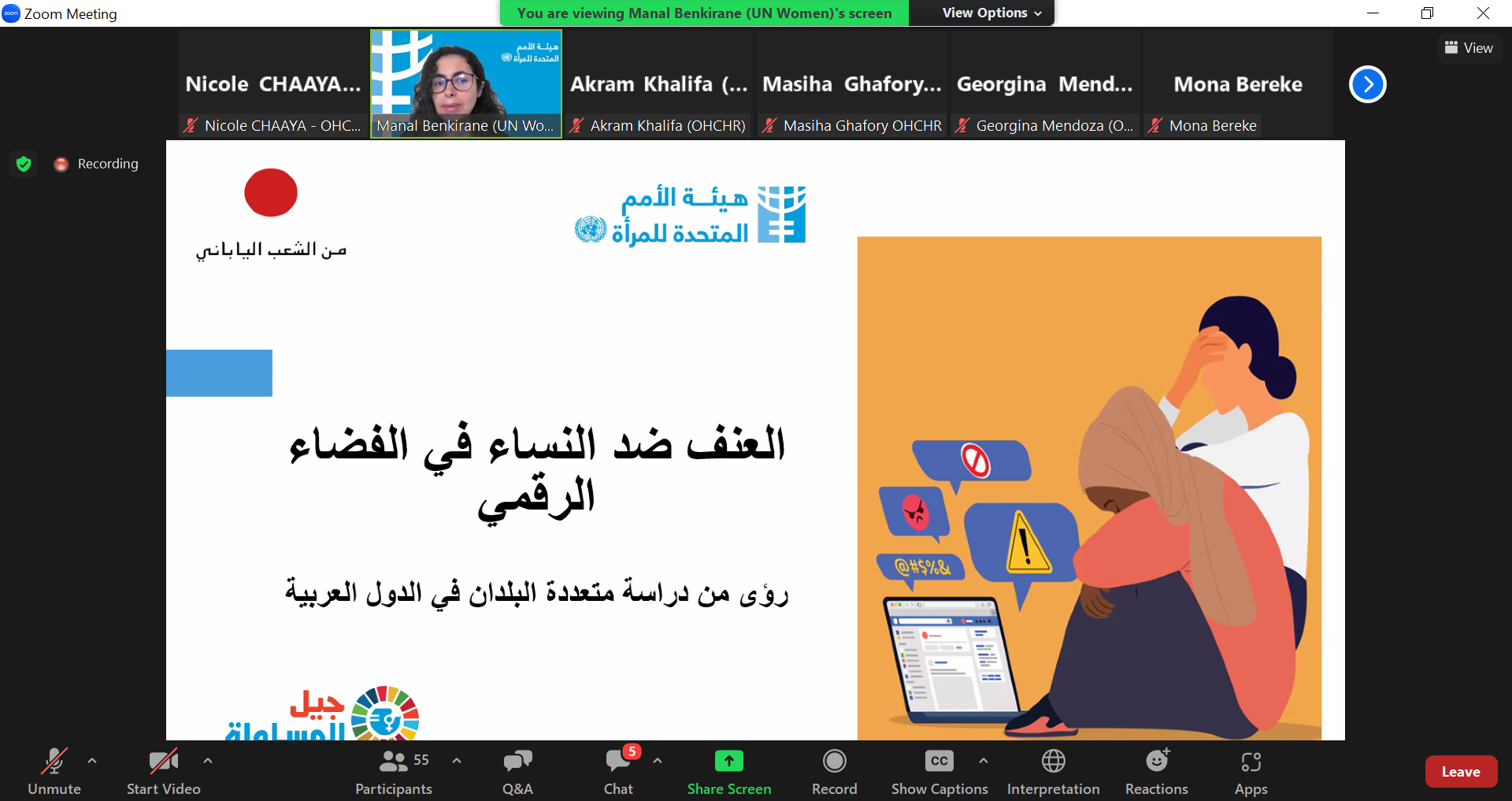Online Protection and Digital Security of Syrian Women Civil Society Leaders
Date:
Author: UN Human Rights Office for Syria

The critical contributions of women human rights defenders (WHRDs) and movements, who use the transformative power of digital technology to connect, mobilize, and drive social change, while fighting against the persistent pushback of women’s rights, cannot go unrecognized.
However, when WHRDs take to the digital space to promote and protect their rights, they are often targeted with particular forms of violence and harassment. This is because they are often perceived as challenging traditional notions of family and gender roles in society.
This is what representatives from Syrian Civil Society, Syrian-led women organizations and other independent experts reflected on during a workshop jointly organized by UN Human Rights Office for Syria and UN Women Regional Office for Arab States (ROAS).
Welcoming the participants to the event, Deputy Representative of UN Human Rights Office for Syria Anne Massagee affirmed the Office’s commitment to help WHRDs strengthen their cyber security, including through working with Syrian partners on this in the future.
In his turn, Ajay Madiwale, Regional Women, Peace and Security Humanitarian Advisor for UN Women ROAS said that Syrian women civil society activists in all areas of the country face numerous obstacles to their safety, security, and ability to operate effectively, which are also faced in the digital sphere.
“While there is limited data available on the prevalence of online information and communications technology-related violence in the region, UN Women conducted a study on the issue and found that 70 per cent of women activists and WHRDs reported feeling unsafe online, while 60 per cent reported being subject to online violence in the last year,” he said, adding that “in many cases, the threats did not remain virtual, as 30 per cent of women reported that the online violence they suffered moved offline.”
Acknowledging the immense opportunities it offered, United Nations Special Rapporteur on Human Rights Defenders Mary Lawlor said the digital world was not immune to the persistent backlash against women’s rights and gender equality including gender-based violence and digital exclusion. She described this situation as a reflective practise of the offline world where women and girls, including those who are lesbian, bisexual, transgender or intersex, were exposed to a myriad of misogynistic attacks used by groups to misinform societies and undermine the advancement of women’s rights and gender equality.
This message was amplified by other United Nations independent experts who participated in this activity. “Online violence can also be experienced as physical, sexual, psychological, political and economic violence,” said Reem Alsalem, the United Nations Special Rapporteur on Violence Against Women and Girls. “Online violence can turn into violence in the life of the victim as it can lead to psychological trauma, social isolation and in some cases it can lead to loss of life,” she said, adding that some groups of women were particularly vulnerable to such acts, such as women in politics and female journalists.
“Other identities they [the WHRDs] may have, such as their ethnic or racial background, religion, political opinions, gender identity, or sexual orientation can also exacerbate this situation,” Alsalem said.
On the second day, digital security experts held a closed meeting with WHRDs in order to equip them with practical tools to protect themselves online and offline from digital threats and improve digital security. The workshop concluded with remarks from the United Nations Special Rapporteur on the Right to Privacy, Ana Brian Nougrères, who spoke about obstacles faced by WHRDs in their private lives in the digital space in the Syrian context and elsewhere.
“We know that the protection is an increasingly important issue in today’s digital world,” Nougrères said, adding that “we need to speak on security because it is impossible to protect data if we don’t have the correct measures to ensure security.
Spanned over a period of two days starting 10 May, the workshop aimed at identifying the threats and attacks that the Syrian WHRDs and their family members are currently facing through online platforms to silence them. It also aimed at guiding users through the basic steps and tools they need to address digital risks and prevent online and offline threats.
This exercise was also undertaken as part of the UN Human Rights’ year-long initiative to commemorate the 75th anniversary of the Universal Declaration of Human Rights and the 30th anniversary of the Vienna Declaration and Programme.